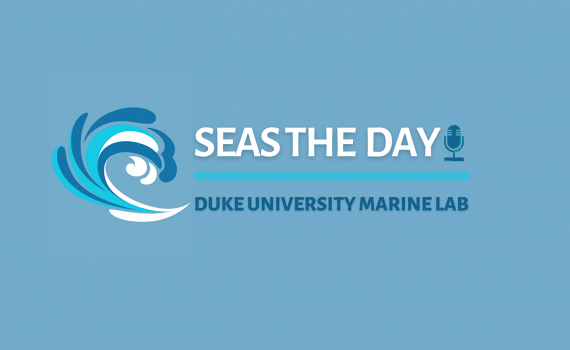In this episode, Alyssa Klim discusses the role of knowledge in shark and ray conservation in small local coastal communities in Indonesia. She looks at examples of conservation efforts that have failed to consider local context, and discusses how local knowledge can be incorporated into conservation practices and what this means for local communities. The episode features insights from Rafid Shidqi, co-founder and managing director of Thresher Shark Indonesia, an NGO dedicated to conserving thresher sharks in Indonesia.
science
Masters students Mariana Kendall and Nicholas Fairbairn sit down with Dr. Carter Smith to learn about her circuitous career path to research ecology. Carter explains how her non-traditional and non-linear path to the sciences has made her a better researcher and educator. We center our conversation on the topic of ecological restoration, a field that inspired EO Wilson to deem the coming era the “Age of Restoration” and the UN to declare a “Decade of Ecological Restoration.” What is the next frontier for this field and how has Dr. Smith seen the field evolve throughout her career? What techniques are most salient and what considerations should practitioners and managers keep in mind when restoring an ecosystem? Dr. Smith shares insights into these questions and, along the way, touches on imposter syndrome in the sciences, ecological grief, and the merits of failure. This episode was recorded in Fall 2022 as part of our Lab Notes series.
What role do sea turtle hatcheries play in conservation? In this episode, Sarah Sevilla and Jessica Stevens dive into the background and various uses of hatcheries, compare the pros and cons, discuss their use in the US versus other nations, and explore improvements in and new technologies for sea turtle management. This episode features Airton Jesus, a field manager at the Turtle Foundation in Cape Verde, and Kartik Shanker, an ecologist with an interest in sea turtles, based in India.
Restoration is a relatively new tool used for the conservation of marine and terrestrial ecosystems. As such, a certain level of uncertainty surrounds what restoration actually is. Our podcast seeks to understand how restoration is defined, specifically as it pertains to Target 2 of the Kunming-Montreal Global Biodiversity Framework adopted by the Convention on Biological Diversity (CBD) in 2022. We are particular interested in artificial reefs and what role they might play in meeting Target 2, which aims to Ensure that by 2030 at least 30 per cent of areas of degraded terrestrial, inland water, and coastal and marine ecosystems are under effective restoration, in order to enhance biodiversity and ecosystem functions and services, ecological integrity and connectivity.
In this episode, Duke Marine Lab students Claire Helgerson, Kendra Rentz, and Anna de Hostos explore the processes by which researchers tag sea turtles to track migratory patterns and learn more about their somewhat mysterious life histories. Through interviews with various researchers, they discuss the methods of managing, processing and sharing tagging data in several sea turtle databases.
In December 2022, world leaders at the Convention on Biological Diversity adopted a proposal to conserve 30% of the Earth by 2030. This proposal was highly controversial and has met with varied reactions from Indigenous Peoples. In this episode, hosts Claudia Deeg and Devin Domeyer discuss the history of conservation’s violence towards Indigenous Peoples, Indigenous Peoples' perspectives on the 30 by 30 proposal, and what happened during the negotiations. This episode features an interview with Jennifer (Jing) Corpuz, lead negotiator on conservation targets for the International Indigenous Forum on Biodiversity.
What is algae biofuel? How do we make it? And how may it be used in the future? In today’s episode of Lab Notes, Junyao Gu interviews the algae biofuel research team at the Duke University Marine Lab, including faculty, technicians, and current and previous students, to discuss the future of biofuel in the context of their research.
In this episode, Cat and Jingyi discuss artificial islands and their role in ocean development. They examine some of the island nations in the Pacific Ocean, such as Kiribati, that are ‘sinking’ due to sea-level-rise and explore how artificial islands might offer such places a solution to this imminent crisis.
How old were you when you found out whales were mammals? It feels like an obvious fact now, but did you ever wonder who first decided to put these fish-like titans of the ocean in the same group as mice and foxes? In this episode, Brandon Gertz follows the story of how whales became mammals, from the birth of natural history over 2,000 years ago to modern genetics.
In this episode, Rafaella Lobo and Jessica Zhao explore the role of non-government organizations (NGOs) in promoting conservation in developing countries. They focus in particular on the role of and relations among Big International NGOs (BINGOs) and small, local NGOs, the strengths and weaknesses of each.

